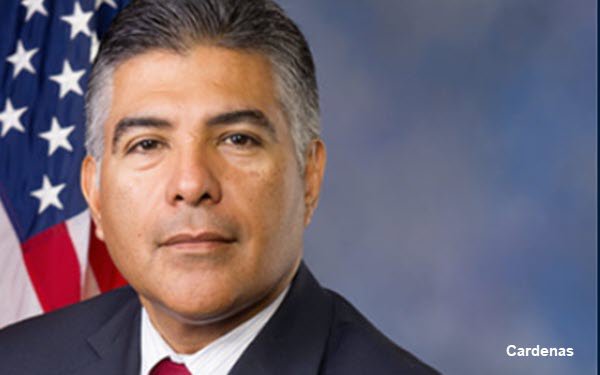23 House Dems Take Streamers' Side In Regulatory Battle With Local TV
- by Karlene Lukovitz @KLmarketdaily, November 9, 2023

The fight over whether virtual multichannel video programming distributors (vMVPDs) should be made subject to the same regulations that apply to traditional TV broadcasters, including cable and satellite TV platforms (MVPDs), seems to be turning into a proxy battle between Democratic legislators.
Rep. Tony Cardenas (D-CA) and 22 of his Democratic colleagues have now sent a letter to the Federal Communications Commission objecting to that proposal, only weeks after 20 Democratic senators sent a letter to the FCC urging the agency to revive a stagnant proceeding to evaluate the proposal.
The FCC initiated a proceeding in 2014 and solicited public comments, but the process never went further.
Owners of local broadcast TV stations are now pushing to revive the proposal, arguing that the lack of streaming regulation impedes their ability to enter and compete in the streaming sector — specifically the online distribution of their self-produced news programming — and that competition from vMVPDs carrying their news threatens the future of local news.
advertisement
advertisement
On the other side, companies owning major streamers, including Disney/ABC, Paramount/CBS, Fox Corp./FOX, NBCUniversal/NBC/Telemundo, Warner Bros. Discovery, Univision, FuboTV and Roku, argue that the current regulatory environment already allows local news stations to be available on streaming and other platforms, and that extending the regulations to streamers will drive up prices for consumers, as well as exceed the FCC's authority.
In July, they formed a group called the Preserve Viewer Choice Coalition, focused specifically on fighting an extension of the MVPD distribution regulations to streamers. In September, big streaming service owners formed a coalition to lobby against not only that regulation extension, but attempts to include streaming under other regulations, such as the proposed Kids Online Safety Act.
The anti-regulatory extension letter to the FCC from the House representatives stated in part: “It was clear even in the 2014 FCC proceeding on this issue that video streaming and the video streaming marketplace were different, and therefore the FCC decided not to proceed. At the September 13th [2023] House Energy and Commerce hearing, the witness for Consumer Reports testified that applying those cable- and broadcast-specific rules to streaming would raise consumer prices and reduce choices. Aside from being an inappropriate standard to apply to the streaming marketplace, there is also reason to believe that these issues may be outside of the FCC’s scope. The 2014 FCC proceeding record shows that there were issues with the FCC asserting jurisdiction. Ultimately, it is the role of Congress to determine changes to the streaming marketplace.”


